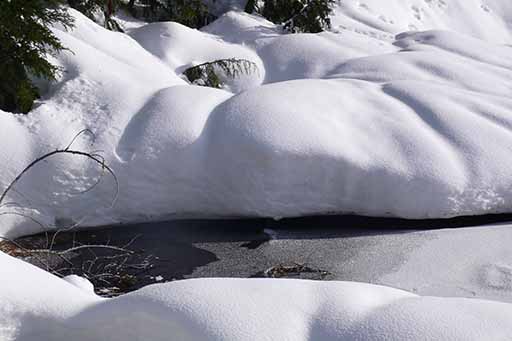Something to keep in mind…
…
in order to do
…
everything we can
…
to save
…
as much of the
…
remaining biosphere as possible
..
.

~
A SEA CHANGE IS NECESSARY
~
People are waking up and the world is melting.
It is a race between the two and one is exponential.
How fast temperatures continue to increase and by what degree our biosphere implodes depends on how fast the world reduces fossil fuel emissions, removes existing CO2, and stops extracting resources from the Earth.
Pressure for this change must continue to come from the people since the controlling corporate powers are doing little to nothing. In fact, emissions are now increasing and plans are being hatched to profit from our planetary disaster.
Navigating transformation of biodiversity and climate
Science 11-27-19
“Biology must become central to climate change science and policy formulation. The planet does not work just as a physical system; that reality needs to become fundamental to the way we pursue the science and derive policy recommendations.”
This planet is the home of life, born into existence and transformed over 3.8 billion years into a continuous tapestry, covering all possible places from the deep ocean floors to mountain summits.
Ours is a bioclimatic world in which every organism, from bacterium to blue whale, inseparably contributes to the climate and surface conditions of Earth. This tapestry, of which we are a part, is unraveling, with its delicate patterns and motifs denigrated to near invisibility, disappearing at a rate and magnitude that rivals that of the great mass extinction events of the past.
This fading to nonexistence is making us unfortunate witnesses to the accumulated consequences of human actions over the past 10,000 years.
Happily, though, we are now increasingly empowered by science and can act to abate ongoing trends and protect planetary resources before the essential threads of life’s coherence become completely eroded.
Our Vanishing World: Wildlife
Scoop 12-3-19
‘In particular, it is becoming increasingly evident how biotic interactions, in addition to permitting the emergence and maintenance of diversity, also build up complex networks through which the loss of one species can make more species disappear (a process known as ‘co-extinction’), and possibly bring entire systems to an unexpected, sudden regime shift, or even total collapse.’ In simple language, a species cannot survive without the resources (the other species) on which it depends for survival and the accelerating loss of species now threatens ‘total collapse’ of ‘entire systems’.
This is because resource and consumer interactions in natural systems (such as food webs) are organized in various hierarchical levels of complexity (including trophic levels), so the removal of resources can result in the cascading (bottom-up) extinction of several higher-level consumers.
And, as if to add yet more pressure to the unraveling of the biosphere there is this new report. Many reports have made such points. What makes this one significant is that it was commissioned by the Pentagon, by the general who is now chair of the Joint Chiefs of Staff…
Deadly growth: Capitalism versus life on Earth
Green Left 12-3-19
Their report recommends strengthening the US military, already the biggest war machine on Earth, to protect the US empire from the consequences of the environmental chaos. They call for a “campaign-plan-like approach to proactively prepare for likely conflict and mitigate the impacts.” As we know, when the US military embarks on a campaign, the result is always devastation and destruction for the poor and oppressed.
As this report shows, the US Army, unlike the US president, knows that climate change is real, and that the consequences may be catastrophic. The generals recognize that something has gone terribly wrong in the relationship between human society and the Earth. …
Uncontrolled growth is clearly a central issue, but that raises a further question — why does it continue? Why, in the face of massive evidence that expanded production and resource extraction is killing us, do governments and corporations keep shoveling coal for the runaway growth train?
The reason is very simple, although its implications are complex and profound. Big banks and money funds and multimillionaires invest in corporations like Volkswagen get more money back. They really don’t care if Volkswagen makes cars or clothes and candy bars, so long as they get a return on their investment.
Corporations are giant social machines for turning capital into more capital. That’s what shareholders expect and want, and that’s what managers and executives must deliver. …
Capital’s ecologically destructive impacts are driven not just by its need to grow, but by its need to grow faster. The circuit from investment to profit to reinvestment requires time to complete, and the longer it takes, the less total return investors receive. Competition for investment produces constant pressure to speed up the cycle, to go from investment to production to sale ever more quickly. That’s why it took sixteen weeks to raise a two-and-a-half pound chicken in 1925, while today chickens twice that big are raised in six weeks.
Such governments will have two fundamental and inseparable characteristics. … Second, they will base their decisions and actions on the best ecological principles, giving top priority to stopping anti-environmental practices, to restoring damaged ecosystems, and to reestablishing agriculture and industry on ecologically sound principles. Such a profound transformation will not just happen. In fact, it will not happen at all unless ecology has a central place in socialist theory, in the socialist program, and in the activity of the socialist movement. In short, in the 21st century, socialists and greens must be ecosocialists, and humanity needs an ecosocialist revolution.

HOT AIR NEWS ROUNDUP
This Week’s Highlights
The World Meteorological Organization report…
WMO: Carbon dioxide levels hit the highest recorded in human history
Coyote Gulch 11-26-19
Atmospheric levels of the greenhouse gas carbon dioxide (CO2) reached the highest ever recorded in human history in 2018, the World Meteorological Organization (WMO) announced in a new report Monday. Why it matters: If the trend continues, as predicted, the impact of climate change will become even more severe, the intergovernmental organization warns. “The last time the Earth experienced a comparable concentration of CO2 was 3-5 million years ago,” WMO Secretary-General Petteri Taalas said in a statement accompanying the report.
COP25 Opens in Madrid Amid Dire Warnings About Climate Change
Democracy Now 12-2-19
The United Nations Climate Change Conference, known as COP25, is opening in Madrid, Spain, today. House Speaker Nancy Pelosi and 14 other Democratic lawmakers are part of a delegation to the summit. It was supposed to be held in Santiago, Chile, but the Chilean government canceled the conference amid massive protests against economic inequality and austerity. Ahead of the summit’s opening, scientists released a number of reports warning that only drastic and unprecedented reductions in greenhouse gas emissions could avoid the most catastrophic impacts of climate change. May Boeve, the head of 350.org, said the reports show “the science is screaming.” This is U.N. Secretary-General António Guterres speaking ahead of the conference’s opening today.
António Guterres: “What is still lacking is political will, political will to put a price on carbon, political will to stop subsidies on fossil fuels, political will to stop building coal power plants from 2020 onwards, political will to shift taxation from income to carbon, taxing pollution instead of people. We simply have to stop digging and drilling and take advantage of the vast possibilities offered by renewable energy and nature-based solutions.”
On Friday, hundreds of thousands of students walked out of schools across the world and took to the streets to demand urgent action to address the climate crisis.
Worth reading the whole thing…
What You Need to Know About Article 6 of the Paris Agreement
WRI 12-2-19
As delegates arrive in Madrid for the UN Climate Change Conference (COP25) this week, one issue is top-of-mind: finalizing the rules on how countries can reduce their emissions using international carbon markets, covered under Article 6 of the Paris Agreement on climate change. …
International carbon markets work like this: Countries that struggle to meet their emissions-reduction targets under their national climate plans (known as “nationally determined contributions,” or NDCs), or want to pursue less expensive emissions cuts, can purchase emissions reductions from other nations that have already cut their emissions more than the amount they had pledged, such as by transitioning to renewable energy. If the rules are structured appropriately, the result can be a win-win for everyone involved — both countries meet their climate commitments, the overachiever is financially rewarded for going above and beyond, finance is provided to the country generating the emissions reductions, and the world gets a step closer to avoiding catastrophic climate change. …
Studies show that if designed well, Article 6 has the potential to contribute to the Paris Agreement’s goals at a lower cost. It can also provide great incentive for private sector investment in various countries and could help some countries leapfrog their technological development. But all of this can only occur if the market is credible, reliable and has integrity.
Pope Condemns Virus of Consumerism amid Black Friday Protests
Democracy Now 12-2-19
In New York City, dozens of members of the environmental group Extinction Rebellion were arrested on Black Friday after hundreds of activists peacefully blocked an intersection in Herald Square in midtown Manhattan protesting Black Friday’s consumerism. The action was part of multiple protests taking place around the globe against the climate crisis and capitalism. In France, dozens of activists protested outside Amazon’s headquarters in Paris, while others formed a blockade at a shopping mall in Paris’s business district. Another protest against Amazon also erupted in Germany. The protests came as Pope Francis condemned the “virus” of consumerism.
Pope Francis: “Dear brothers and sisters, consumerism is a virus that affects the faith at its root, because it makes you believe that life depends only on what you have. When you live for things, things are never enough, greed grows and other people become obstacles in a race and so one ends up feeling threatened and always dissatisfied and angry. The level of hatred rises.”
Climate Change Is Accelerating: ‘Things Are Getting Worse’
NYT 12-4-19
Seas are warming and rising faster, putting more cities at risk of tidal flooding or worse. Glaciers are melting at a pace many researchers did not expect for decades. The amount of Arctic sea ice has declined so rapidly that the region may see ice-free summers by the 2030s. Even the ground itself is warming faster. Permanently frozen ground, or permafrost, is thawing more rapidly, threatening the release of large amounts of long-stored carbon that could in turn make warming even worse, in what scientists call a climate feedback loop. …
“No one is terribly sure about what will happen by 2100,” Dr. Nerem said. “If the ice sheets really start to go, things could change dramatically.”
Greenland and Antarctica hold enough ice to raise seas by about 220 feet if it all melted. Complete melting would take many centuries. …
“Overall we do not expect Greenland to slow down,” he said. “And we definitely expect an acceleration in mass loss of the West Antarctic ice sheet.” While the West Antarctic sheet currently contributes a small amount to sea level rise, eventually it could contribute as much as Greenland, he said. … Her recent research found rapid thawing of permafrost high in the Canadian Arctic, where there is little surface vegetation to insulate the frozen ground. By 2016 the permafrost had already thawed at depths not expected until 2090 under a model of “moderate” global warming.

ADAPTION AND RESILIENCE
Irish Teenager Wins Google Science Award for Removing Microplastics From Oceans
EcoWatch 8-2-19
Ferreira’s project used a novel, but effective methodology for removing ocean plastics. He used magnets to attract microplastics from water. The project found that a magnetic liquid called ferrofluid attracted the tiny plastic particles and removed them from the water. After nearly a thousand tests, his device successfully removed about 88 percent of the microplastics from water samples, according to The Irish Times.
Climate Restoration to Ensure Life’s Long-Term Survival on our Planet
Paul Beckwith 11-25-19
When people talk about what society needs to do about climate change you often hear talk of Mitigation (reducing emissions to zero by 2050) and Adaptation (dealing with the changes that are already occurring). We must add CLIMATE RESTORATION to this lexicon. Climate restoration is all about ensuring that the climate for our children and grandchildren is returned to the healthy climate enjoyed by our parents and grandparents when they were young children.
Here is the paper referred to above…
Climate Restoration
Foundation for Climate Restoration
Climate Restoration requires us to acknowledge that we need an additional strategy, complementing mitigation and adaptation, if we want to restore a climate that can sustain humanity. This paper walks through some of the solutions that could get us there.
CO2-eating bacteria made in the lab could help tackle climate change, scientists claim
Independent 12-2-19
Bacteria which normally survive on sugar have been genetically altered to make them capable of surviving through consumption of carbon dioxide and could be harnessed to help produce sustainable supplies of food and fuel, scientists claim. Over the course of several months, researchers in Israel created an E coli strain which, through genetic manipulation, consumes CO2 for energy instead of organic compounds. The team used “metabolic rewiring”, to help transform the E coli’s diet to make it consume CO2 in a similar manner to a plant. This involved adding genes which metabolise CO2, and removing genes which usually process sugar compounds.
Sounds of the past give new hope for coral reef restoration
EurekAlert 11-29-19
Young fish can be drawn to degraded coral reefs by loudspeakers playing the sounds of healthy reefs, according to new research published today in Nature Communications. An international team of scientists from the UK’s University of Exeter and University of Bristol, and Australia’s James Cook University and Australian Institute of Marine Science, say this “acoustic enrichment” could be a valuable tool in helping to restore damaged coral reefs.
Working on Australia’s recently devastated Great Barrier Reef, the scientists placed underwater loudspeakers playing healthy reef recordings in patches of dead coral and found twice as many fish arrived – and stayed – compared to equivalent patches where no sound was played.
“Fish are crucial for coral reefs to function as healthy ecosystems,” said lead author Tim Gordon, of the University of Exeter. “Boosting fish populations in this way could help to kick-start natural recovery processes, counteracting the damage we’re seeing on many coral reefs around the world.”

LEGISLATION, ELECTIONS & POLICY
‘Our house is on fire’: EU parliament declares climate emergency
The Guardian 11-28-19
The European parliament has declared a global “climate and environmental emergency” as it urged all EU countries to commit to net zero greenhouse gas emissions by 2050. The vote came as scientists warned that the world may have already crossed a series of climate tipping points, resulting in “a state of planetary emergency”.
Vermont Doubles Down on Wood Burning, with Consequences for Climate and Health
Inside Climate News 11-26-19
While advocates of wood burning argue that sustainably harvested wood is “carbon neutral,” recent research suggests that many of the climate benefits of burning biomass instead of fuel oil or propane are cancelled out by other climate-warming pollutants, including black carbon and methane, both many times more potent than carbon dioxide. Despite those concerns, when the state updated its Comprehensive Energy Plan (CEP) in 2016, laying out detailed steps for reaching the state’s goal of getting 90 percent of its total energy needs from renewable energy by 2050, wood burning was part of the plan.
The plan calls for increasing the share of Vermont’s total building heating demand met with wood heating from 21 percent in 2016 to 35 percent by 2030. This would effectively double the number of households relying on wood. One reason for the state’s big bet on biomass is what wood-burning would displace: Vermonters rank second nationwide in their use of heating fuel oil per capita.
Cabinet approves stand that India will take at COP25
The Hindu Business Line 11-30-19
The Cabinet has approved India’s negotiating stand at the upcoming 25th Conference of Parties (COP) to the United Nations Framework Convention on Climate Change (UNFCCC). …
“India has emphasised that developed countries should take a lead in undertaking ambitious actions and fulfil their climate finance commitments of mobilising $100 billion per annum by 2020 and progressively and substantially scale up their financial support to inform parties for future action through Nationally Determined Contributions (NDCs).
Pelosi Leads Bicameral Congressional Delegation to Madrid for COP25
NP Newsroom 11-30-19
The Members of the Congressional Delegation are:
Speaker Nancy Pelosi (D-CA),
Senator Sheldon Whitehouse (D-RI),
Chairman Frank Pallone (D-NJ),
Committee on Energy and Commerce,
Chairwoman Eddie Bernice Johnson (D-TX),
Committee on Science, Space,
Technology, Chairman Raúl Grijalva (D-AZ),
Committee on Natural Resources,
Chairwoman Kathy Castor (D-FL),
Select Committee on the Climate Crisis,
Congresswoman Betty McCollum (D-MN),
Congresswoman Suzanne Bonamici (D-OR),
Congresswoman Julia Brownley (D-CA),
Congressman Jared Huffman (D-CA),
Congressman Scott Peters (D-CA),
Congresswoman Debbie Dingell (D-MI),
Congressman Mike Levin (D-CA),
Congressman Sean Casten (D-IL),
Congressman Joe Neguse (D-CO)
Wisconsin Initiative on Climate Change Impacts revived under Governor’s task force
WISC 12-2-19
“We are so pleased the state is taking climate change seriously and including science as a part of its task force,” says Steve Vavrus, co-director of the initiative and a senior scientist at the Nelson Institute’s Center for Climatic Research. “We are thrilled to see our scientific findings utilized to guide policy.
Our contribution to the task force will provide us with a great opportunity to strengthen our relationships with state agencies.” WICCI hopes to explore topics such as how climate change affects infrastructure, the Great Lakes, tourism and tribal nations. It also plans to expand research and outreach efforts, add new groups to research and reorganize its working groups — which include members from state and federal agencies, UW System schools, tribal organizations, businesses and nonprofit organizations.
Climate change ‘blueprint’ for Wales launched
BBC 11-30-19
The plans build on the climate emergency declaration made earlier this year and Wales’ first climate change conference, the Welsh Government said. Ms Griffiths added: “But we must all adapt and we must all commit to protect our nation for current and future generations. “Success will mean Wales is a climate conscious nation, aware of the risks facing us, whilst being prepared and ready to adapt to the impacts before they occur.”

THE FIRES
Woman Sets Charred Remains of Her House Destroyed by Bushfire in Front of Australian Parliament: ‘Your Climate Crisis Destroyed My Home’
Newsweek 12-2-19
A woman whose house was destroyed in the bushfires that ravaged New South Wales last month has taken the charred remains of her home to the steps of Australia’s parliament building and demanded that lawmakers act on climate change.
In October, Melinda Plesman lost her family home of 38 years during the bushfires that ripped through Nymboida, south of Grafton, according to Australia’s ABC News. Fire crews had to battle over 120 fires across the state which killed at least four people and destroyed hundreds of properties. Plesman was angered by Australia’s prime minister Scott Morrison when he offered “thoughts and prayers” for the victims of the fires on Twitter but would not accept the link between climate change and the fires.
Climate change biggest threat to world heritage area
ABC 12-3-19
A long-awaited report on the management of Tasmania’s Wilderness World Heritage Area (TWWHA) has found the biggest threat to its ongoing protection is climate change. The report, prepared by the Federal Department of Environment and Energy in cooperation with the Tasmanian Government, was delivered to UNESCO yesterday as part of Australia’s obligation to provide information on action taken to protect and sustain the World Heritage Area.
“Fire is one of the greatest challenges for the management of the property, particularly in the context of a changing climate,” the report said It goes on to acknowledge that according to climate change projections, increased frequency of fires and longer fire seasons are likely.
“This report confirms that over 100,000 hectares have been burnt in two sets of fires … and these fires burnt extremely sensitive vegetation … ancient life forms such as Huon pine, King Billy pine and giant eucalypt trees which will not recover or which might take generation upon generation to recover,” Tasmanian conservationist Geoff Law said.

THE ARCTIC
Accelerating greenhouse gas levels
Arctic News 11-27-19
The United Nations Environment Programme (UNEP) just released its annual Emissions Gap Report, warning that even if all current unconditional commitments under the Paris Agreement are implemented, temperatures are expected to rise by 3.2°C, bringing even wider-ranging and more destructive climate impacts. The report adds that a continuation of current policies would lead to a global mean temperature rise of 3.5°C by 2100 (range of 3.4–3.9°C, 66% probability) and concludes that current policies will clearly not keep the temperature rise below 3°C and that temperatures may rise by much more than that.
FOSSIL FUELS
South Korea to Shut Down a Quarter of Its Coal-Fired Plants to Reduce Air Pollution
EcoWatch 11-29-19
South Korea will close up to a quarter of its coal-fired plants for the winter months to tamp down on air pollution that the country declared a “social disaster” after several cities experienced record high levels of air pollution last winter, as CNN reported. The shutdown is noteworthy for its timing, since South Korea’s demand for electricity peaks during the winter months. However, the energy ministry said yesterday that the plants that remain open are able to supply sufficient electricity, according to Reuters.
South Korea’s energy ministry said shuttering the coal plants for the winter months would reduce fine dust emissions by 44 percent over the next three months compared to the same period one year ago, as The Guardian reported. After the winter, the country plans to suspend more coal plants, possibly bringing the total up to 27 of the country’s nearly 60 plants by the end of March. The shutdowns come at the behest of a presidential committee that recommended a deliberate and systematic move away from coal to step up the country’s anti-pollution efforts, according to Reuters.
In China, coal creeps back in as slowing economy overshadows climate change ambitions
Reuters 12-2-19
A major concern remains the economic fortunes of coal regions like Shanxi, which still relies on the fuel for half its jobs and 80% of its energy. “The fact that Shanxi’s economy relies heavily on coal is unlikely to change in the coming years,” said a scholar at a provincial government think tank, speaking on condition of anonymity because of the sensitivity of the matter.
Much of the debate centers on how well renewables can supply reliable “baseload” power to China in the future and support major initiatives like vehicle electrification. According to a research institute run by the State Grid Corporation, China will need 1,250 gigawatts to 1,400 gigawatts of coal-fired power over the long term to guarantee stable electricity supplies, up from around 1,000 GW now.
WEATHER
Two-Pronged Winter Storm Blitzes Western, Central U.S.
Category Six 12-2-19
After trigging blizzard warnings in parts of Wyoming and Colorado, the storm ripped onto the Plains on Tuesday. Winter storm warnings were in effect for most of Nebraska, northwest Iowa, southeast Minnesota (including the Minneapolis area), and northwest Wisconsin. These areas will be hit from Tuesday afternoon into Wednesday, just as pre-Thanksgiving travel is kicking into full gear. Severe weather may develop Tuesday evening in the lower to mid-Mississippi Valley.
Thanksgiving storm brings snow, sleet and wind to most of the US
The Guardian 12-2-19
“It’s moving very slowly, so the snow is just going to continue through the day,” National Weather Service (NWS) meteorologist Jennifer Vogt said. By Monday afternoon, the storm had dropped 27in of snow in rural Delanson, New York, 25 miles north-west of Albany, the highest snow total in the north-east so far.
Forecasters predict accumulations near 30in by Tuesday morning in parts of Vermont’s Green Mountains. The storm has pummelled the US for days, dumping heavy snow from California to the midwest and inundating other areas with rain.
Climate Whiplash: Wild Swings in Extreme Weather Are on the Rise
e360 Yale 11-16-19
As the world warms, scientists say that abrupt shifts in weather patterns — droughts followed by severe floods, or sudden and unseasonable fluctuations in temperature — are intensifying, adding yet another climate-related threat that is already affecting humans and natural world.
A Review of the Atlantic Hurricane Season of 2019
Scientific American 11-25-19
The season had two ominous harbingers of a warming climate: an ultra-intense hurricane–worthy of a category 6 rating if such a thing existed–and multiple damaging storms that moved very slowly at landfall. The ultra-intense hurricane was Hurricane Dorian, whose 185 mph winds devastated The Bahamas in early September when the mighty category 5 storm stalled over the islands. Dorian and Lorenzo (in far eastern Atlantic) were both category 5 storms, making 2019 the fourth consecutive year in which a category 5 storm developed in the Atlantic basin–a new record.
The damaging slow-moving storms of 2019 were Hurricane Barry (Louisiana, $600 million in damage), Hurricane Dorian (The Bahamas, Southeast U.S. and Canada, at least $4.6 billion in damage), Tropical Storm Imelda (Texas and Louisiana, $2 billion in damage), and Tropical Storm Fernand (northeast Mexico, $250 million in damage). All four storms moved at 8 mph or slower for two or more days near the time of landfall.
HEALTH
Climate change could put women at risk for giving birth early
ABC 12-3-19
The study, published in the journal Nature Climate Change this week, found that in the United States, the birthrate increased by 5% on days in which the temperature exceeded 90 degrees. Researchers analyzed country-level birthrates over 20 years to make their projections, and estimated that heat exposure translated into 25,000 infants born earlier than predicted each year, approximately 150,000 hours of lost gestational time.
Although the researchers described the average length that gestation was shortened — approximately 6.1 days — as “modest,” some babies were born two weeks earlier.
Climate change and children’s health
Medical Net 12-2-19
At the same time, droughts are occurring all over the planet. Rainfall patterns are changing as well. The result is crop failure and the outcome is inflated food costs. This causes reduced food availability for the poor as well as nutritional deficiencies which may very well last lifelong.
The loss of livelihood, the need to migrate elsewhere to earn a subsistence or to cover debt repayment incurred as a result of crop losses, conflicts with earlier occupants of the new place they migrate to, and general neglect of children in addition to the inability to provide a chance for children to learn, to grow, to work and to play, in such a way as to fit them for mature adult life. Diseases like dengue and malaria which will become more common as a result of climate change are poorly resisted by children. In fact, children under 5 will bear 90% of disease due to the changing disease pattern caused by climate change.

WILDLIFE & THE ENVIRONMENT
The Link Between Marine Fog and High Levels of Mercury in Mountain Lions
e360 Yale 11-29-19
Scientists have discovered that marine fog in California carries with it high levels of mercury, which they say is being deposited on land and making its way up the food chain.
Pumas living in the coastal Santa Cruz Mountains, an area often draped in fog, have mercury levels three times higher than mountain lions that live outside the fog zone. Lichens and deer also had significantly higher levels of mercury in the fog belt. The research, published this week in the journal Scientific Reports, found that mountain lions had mercury concentrations approaching toxic thresholds that could cause neurological damage, impact reproduction, and threaten survival.
Mercury is released into the atmosphere through a variety of industrial processes, including mining and coal-fired power plants. Once airborne, the element can travel internationally, crossing countries and oceans.
As explained in a press release, “as atmospheric mercury rains down on oceans, it is converted by anaerobic bacteria in deep waters to methylmercury, the most toxic form of mercury. Upwelling brings some methylmercury to the surface, where it is released back into the atmosphere and carried by fog.” The presence of elevated levels of methylmercury in lichens, which don’t have roots, is evidence that this contaminate is coming from the atmosphere.
Largest pilot plant for CO2-neutral production of hydrogen begins operation at voestalpine site in Linz
Green Car Congress 11-29-19
What is currently the world’s largest pilot plant for the CO2-neutral production of hydrogen has successfully commenced operation at the voestalpine site in Linz, simultaneously setting an international milestone in the advancement of new energy supply options. As part of the EU-funded H2FUTURE project, partners voestalpine, VERBUND, Siemens, Austrian Power Grid, K1-MET and TNO are researching into the industrial production of green hydrogen as a means of replacing fossil fuels in steel production over the long term.
South Africa’s Karoo drills and prays as taps run dry
Reuters 12-1-19
As the dry spell entered its fourth year, tap water turned brown and smelled like rotting fish. When the water behind the Nqweba Dam dried up, depositing tens of thousands of dead fish onto cracked earth, queues began forming at municipal bore holes and farm animals died in their hundreds.
The bleak choices facing millions of people in drought-stricken southern Africa – whether to flush toilets or not, or to keep animals alive or let them die – could soon be faced by other places on a warming planet with shrinking water supplies.
“This area is dry but our taps have never been completely empty. Never,” said Bukelwa Booysen, who has had to send staff in search of borehole water for her school for disabled children, and send the kids home when they can’t find any.
Some Nevada trees, plants to be stressed by climate warming
AP 11-29-19
Water officials have identified six species of trees and a dozen other plants commonly found in Las Vegas-area landscaping that could see extreme heat stress in 40 years as the climate warms. The Southern Nevada Water Authority warns that even some desert flora with cooling properties could be impacted in the decades to come, the Las Vegas Sun reports.
“Nobody is necessarily saying that these plants are certain to perish, but we do know that they could be under increasing stress for a period of time, and it’s definitely something we should be aware of,” said Doug Bennett, the authority’s conservation manager.
The purple leaf plum tree, among the trees flagged by the authority, is non-native to the desert and typically doesn’t live long in southern Nevada, Bennett said. The ash tree, which is seen throughout the Las Vegas area, and the elm trees, are favored for the shade the produce but are poorly suited for desert life and expected to fare worse under warming temperatures.
Climate change impacts on VIC [Australia] mountains – less snow, more fires
The Mountain Journal 12-2-19
The Victorian government has recently released the ‘Climate Science Report 2019’, which brings together the latest climate change science knowledge gained from the government’s ongoing investigations into climate science. The report provides further useful insights into both how our climate is changing and what it means for Victoria’s future.

PROTESTS • EXTINCTION REBELLION • RESISTANCE
Thousands of Activists Stage Protests at Three German Coal Mines to Demand Bolder Climate Policies
Common Dreams 11-30-19
On the heels of Friday’s global youth-led climate strike, thousands of activists staged demonstrations at three coal mines in Germany Saturday to protest the government’s plan to phase out coal by 2038, which activists say isn’t soon enough.
The German news agency dpa reported that “protesters ran into the Jänschwalde and Welzow-Süd open-cast mining sites in the eastern state of Brandenburg, as well as the United Schleenhain lignite mining area in neighboring Saxony.” Ende Gelände (End of the Road), which helped organize the protests, said there were about 4,000 demonstrators total, while some reporting put the number closer to 2,000. “We’re at a critical moment—the window of opportunity to stop the climate crisis is closing rapidly,” Ende Gelände spokesman Johnny Parks told German broadcaster DW.
Fridays for Future
Students stage global strikes to pressure U.N. climate summit
Reuters 11-28-19
Portugal’s student movement still expected thousands to join marches on Friday, building on the famous campaigner’s imminent arrival to mobilize ahead of the United Nations climate summit in Madrid from Dec. 2-13. “We wish she’d [Greta] been here, but the movement has to carry on without her. We’ve got to send our message and pressure politicians ahead of the climate summit,” Marianna Louca, 14, told Reuters in Lisbon. Friday’s climate strikes were expected to take place in 2,300 cities in 153 countries around the world, according to the climate campaign group Friday For Future.
The protests come as experts warn that global temperatures could rise sharply over this century with destructive consequences after greenhouse gas emissions hit record levels. Outside parliament in London, protesters flew a giant blimp in the shape of a baby with “Guess my weight in CO2” written on its vest. Other protests took place in Mumbai, Tel Aviv, Vienna and Frankfurt. In Bangkok, young people chanted: “No more coal, no more oil, keep the carbon in the soil”, and staged a “drop dead” flash mob. In Warsaw, activists, some in gas masks, waved banners saying: “Save our planet” and “Poland without coal 2030”. In Berlin, protesters in swimming costumes dived into the chilly river Spree, holding up a white box in a symbolic attempt to rescue the government’s climate change package.
Greta Thunberg
Greta Thunberg completes sail to attend U.N. climate conference in Spain
Washington Post 12-2-19
Climate change activist Greta Thunberg arrives aboard the yacht La Vagabonde in Lisbon, Portugal, on Tuesday. Greta does not travel by airplane, so the teen crossed the Atlantic by sailboat after a months-long visit to North America. She is scheduled to attend the United Nations climate conference in Madrid, Spain. She arrived Tuesday by catamaran in the port of Lisbon after a three-week voyage across the Atlantic Ocean from the United States. The Swedish teen sailed to the Portuguese capital before heading to neighboring Spain to attend the United Nations Climate Change Conference taking place in Madrid.
Extinction Rebellion
JOIN XR USA: on their website
XR NEWSLETTERS & EVENTS: on their website
XR USA: on YOUTUBE
NEW XR TRUTH TELLER SITE: on TRUTH TELLER.LIFE
“Calling all concerned Citizens: Tell the world what you know”
Humanity has the know-how to avert catastrophic climate and ecological breakdown. Yet we’re failing to heed the scientific warnings and put them in place. Why aren’t we adopting emergency measures the world over? And what are the near-term consequences of inaction? Do you know something that would help reveal what’s really going on?
Extinction Rebellion activists protest at COP25 in Madrid
AFP 12-2-19
Members of the “Extinction Rebellion” movement demonstrated on the sidelines of the opening of COP25 in Madrid to call on political leaders to act quickly for the climate. Members of the “Extinction Rebellion” movement demonstrated on the sidelines of the opening of COP25 in Madrid to call on political leaders to act quickly for the climate.

CLIMATE STUDIES
Nearly 40% of species are very rare and are vulnerable to climate change
EurekAlert 11-27-19
Almost 40% of global land plant species are categorized as very rare, and these species are most at risk for extinction as the climate continues to change, according to new University of Arizona-led research. …
“When talking about global biodiversity, we had a good approximation of the total number of land plant species, but we didn’t have a real handle on how many there really are,” said lead author Brian Enquist, University of Arizona professor of ecology and evolutionary biology. …
They found that there are about 435,000 unique land plant species on Earth. “So that’s an important number to have, but it’s also just bookkeeping. What we really wanted to understand is the nature of that diversity and what will happen to this diversity in the future,” Enquist said.
“Some species are found everywhere – they’re like the Starbucks of plant species. But others are very rare – think a small standalone café.” Enquist and his team revealed that 36.5% of all land plant species are “exceedingly rare,” meaning they have only been observed and recorded less than five times ever.
Climate Tipping Points Could Hit Harder — and Sooner — Than We Think
Truthout 11-28-19
In the paper, published as a commentary in the journal Nature on Wednesday, the group of researchers summarize the latest findings related to the threat of tipping points as part of effort to “identify knowledge gaps” and suggest ways to fill them. “We explore the effects of such large-scale changes,” the scientists explain, “how quickly they might unfold and whether we still have any control over them.” …
Among the key evidence that tipping points are underway, the paper highlights a litany of global hot spots where runaway warming could unleash—or is already unleashing—dangerous feedback loops. They include: frequent droughts in the Amazon rainforest; Arctic sea ice reductions; slowdown in Atlantic Ocean currents; fires and pests in the northern Boreal forest; large scale coral reef die-offs; ice sheet loss in Greenland; permafrost thawing in Eastern Russia; and accelerating melting in both the West and East Antarctic. …
In the end, the new paper’s conclusion was twofold: more needs to be known about these crucial tipping points and that only urgent action can stave off the urgent threat an increasingly hotter world.
Global Warnings
Paul Beckwith: “I declare a global climate change emergency to claw back up the rock face to attempt to regain system stability, or face an untenable calamity of biblical proportions.”
Kevin Hester: “There is no past analogue for the rapidity of what we are baring witness to. There has been a flood of articles … 2C is no longer attainable and that we are heading for dangerous climate change”
Magi Amma: We need to turn on a dime at mach nine!
…
Equivalencies:
• 1 gigatonne = 1 billion tons
• 1 gigatonne Carbon = 3.67 gigatonnes CO2
• 1 part per million (ppm) of atmospheric CO2 = 7.81 gigatonnes CO2
• 1 part per million of atmospheric carbon = 2.13 gigatonnes of carbon